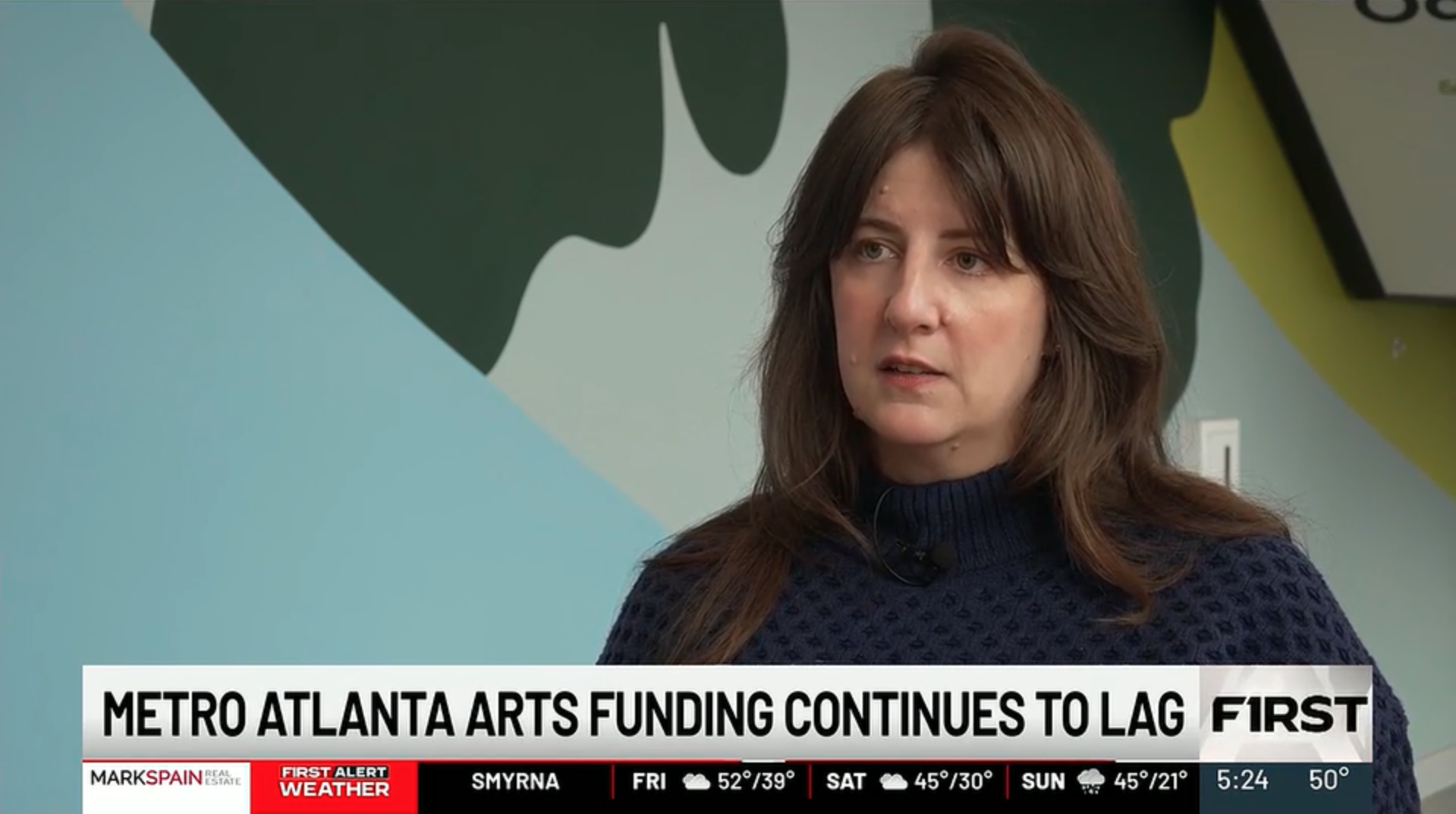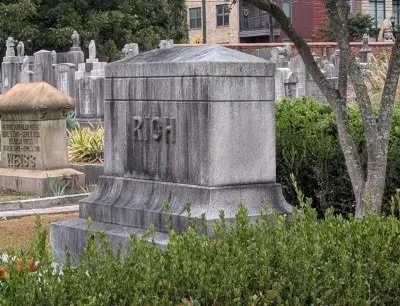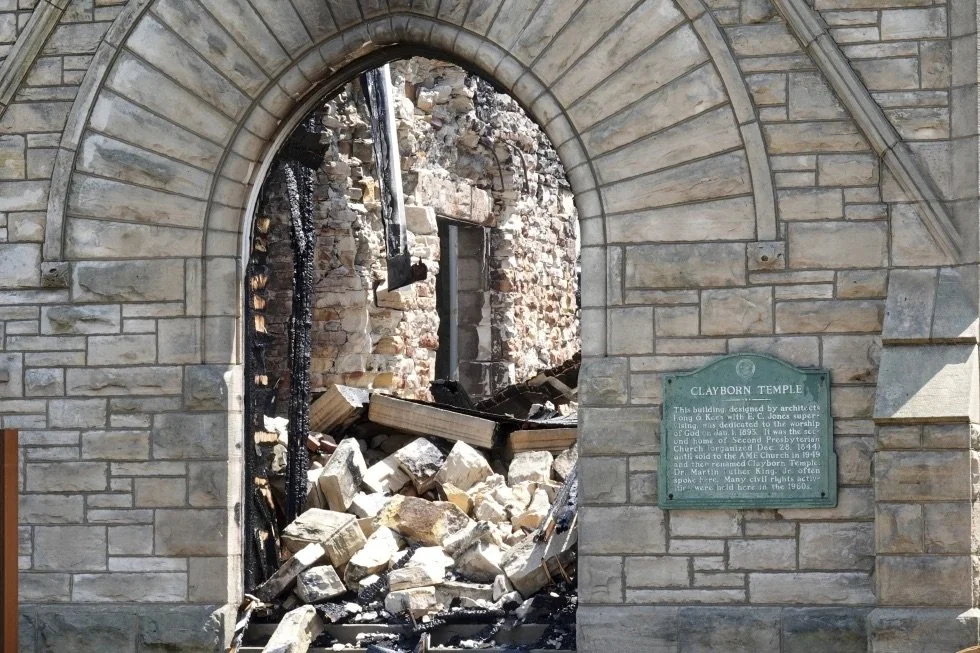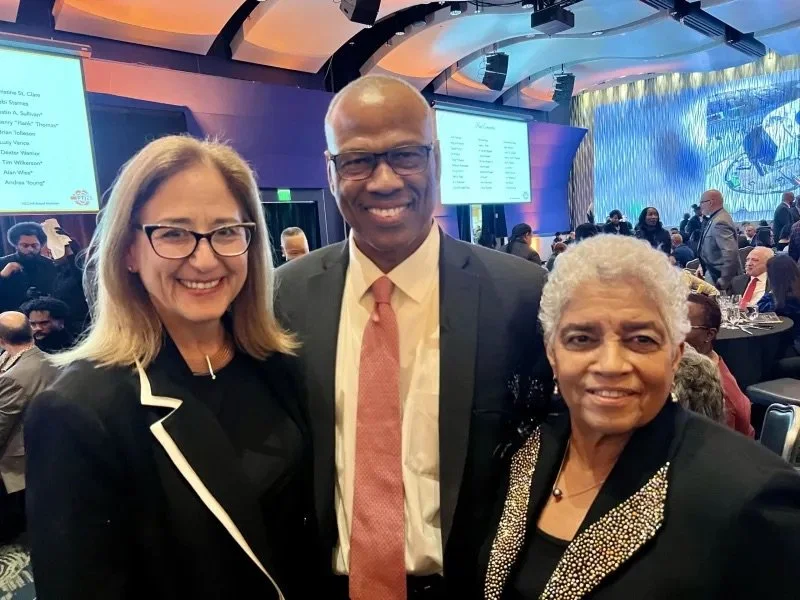Our Clients in the News
Laura Hennighausen, CEO of Arts Capital | Atlanta, speaks with Atlanta News First about the consistent lack of funding for the Arts in Atlanta, as well as ongoing changes in funding preferences and new requirements from grantors.
The National Center for Civil and Human Rights is expanding its exploration of the country’s racial dynamics despite a surge of government resistance. It is not lost on the center’s leaders that a museum devoted to the push and pull of the country’s fitful civil rights history is reopening at a moment when President Trump has used the force of the federal government to dismantle diversity programs and promote a sunnier version of America’s story.
With new wings, redesigned exhibits, and a focus on children, the National Center for Civil and Human Rights is back as both memorial and classroom. After being closed since January for renovations, the center will feature four new spaces with exhibits changing twice a year, offering visitors a deeper dive into civil and human rights stories.
The last day of the month is usually when food is scarcest for people who rely on the Supplemental Nutrition Assistance Program (SNAP), aka food stamps. However, a new collaborative effort to open a mobile food pantry between St. Paul’s and Emmaus House served 205 families on Oct. 31st, representing 525 people receiving fresh and packaged produce, protein, and canned goods. Their first distribution together became even timelier because the federal government stopped SNAP payments on Nov. 1.
In the week leading up to Halloween and Día de los Muertos, members of the Corporate Volunteer Council of Atlanta (CVC) gathered at the Historic Oakland Cemetery to learn about significant change makers laid to rest there. "RIP (Rest in Philanthropy)” as the annual event is called, guides attendees through stories of leadership shaped by volunteers, mentors, advocates, philanthropists and elected officials who answered the call when their city and neighbors needed them most.
The American Planning Association has awarded a 2025 Advancing Diversity and Social Change in Honor of Paul Davidoff Award to The Clarkston Greenway Feasibility Study which explored different path locations to better connect residents to different parts of town and create a more walkable and livable community. The study centers the voices of at-risk and historically overlooked residents in one of the nation's most diverse cities to prioritize access to nature, health, and mobility. The thoughtful placement of the greenway enhances access and connectivity to schools, transit stops, retail, and health clinics.
A temporary hub for contemporary arts will soon rise on the western edge of Georgia Tech’s campus, a prelude of sorts for an expansion of the campus dedicated to creative arts and industry.
“Loop,” as the space has been named, will bring art installations, performances and immersive events to the 7-acre former Randall Brothers manufacturing site in west Midtown. It will be operated by the Goat Farm Arts Center in conjunction with GT.
Georgia Tech envisions building a hub where new technologies for producing art are developed, shared and experimented with, akin to the innovation districts it has built for life sciences and technology.
The annual ULI Awards honor development projects across the state for their exceptional vision, leadership, and lasting impact on Georgia’s built environment. Atlanta Land Trust won the Affordable and Workforce Housing Award for The Avenue at Oakland City. The Avenue is a 36-townhome development providing affordable for-sale housing within walking distance of the Oakland City MARTA Station and the BeltLine Westside Trail. The Historic District-approved design features five, two-story, multifamily buildings with front porches and alternating principal roof forms of front-facing gables and shed roofs. Significant infrastructure upgrades eliminate flooding on the site from combined sewer overflows. Developers also installed new water and sewer infrastructure under Tucker Avenue and repaved the street.
The city of Minneapolis is nominating the Minnesota Spokesman-Recorder, the Phyllis Wheatley Community Center and the former home of civil rights advocate Harry Davis, Sr. to the National Register of Historic Places. The Phyllis Wheatley Community Center has been providing community programs and services for 100 years in north Minneapolis. It opened in 1924 when young Black women who were barred from the dorms at the University of Minnesota raised funds to open a settlement house.
Annually, the September issue of Atlanta Magazine centers on The Arts. This feature story details the day-to-day challenges arts organizations are facing in the wake of ongoing funding cuts. Hear from Mack Headrick, managing director of 7 Stages; Laura Flusche, executive director of Museum of Design Atlanta; and Christopher Escobar, Atlanta Film Festival. Plus learn more about how they’re banding together through Arts Capital | Atlanta.
With two new wings, the 24,000-square-foot expansion of the National Center for Civil and Human Rights will re-open November 8 after being closed to visitors since January.
Dragon Con organizers say they intentionally chose mental health as this year’s focus for their massive annual fundraising campaign. In 2024, Mental Health America ranked Georgia 47th out of 50 states for access to mental health care. In response, NAMI Georgia has been working to close the gap.
Pro Bono Partnership of Atlanta’s Executive Director, Rachel Spears, was selected to receive a Distinguished Service Award form the Atlanta Bar Association, one of the bar’s highest honors.
Laura Hennighausen, Director of Strategic Philanthropy at Purpose Possible and CEO of Arts Capital | Atlanta (AC|A) speaks with the Good2Give Podcast form the Community Foundation for Northeast Georgia (CFNEG) about why the collaborative started and how its addressing the urgent need for arts funding in the region.
The Giving Gap from WSB-TV Channel 2 highlights the work of local non-profits and the recent challenges they face in the wake of Federal funding cuts. Midtown Assistance Center shares their mission and how they’re concerned about the future of food assistance programs.
Charles Walsh (pictured) plays the bass guitar inside his room at CaringWorks Hope House, a 70-bed residential facility that supports adult men who have experienced homelessness and are in recovery from substance abuse. CaringWorks seeks to meet each individuals’ specific needs through their successful recovery program, however the program is facing a difficult path forward with the federal funding cuts.
At Black Butterfly Teaching Farm, run by the Farm Alliance of Baltimore (FAB), locals learn to build a climate-resilient food system with economic potential in the midst of an industrial city. The farm was designed to turn food-curious people into urban farmers, especially those who live or work in the “Black Butterfly”—the regions of the city to the east and west of the center, shaped like a pair of butterfly wings, where the city’s majority Black population lives. The Trump administration has cut many farming initiatives, including those addressing climate change and environmental injustice. That leaves programs like Black Butterfly—which aim to instill sustainable agriculture knowledge in residents who have long been blocked from land access—in limbo.
As the world counts down to the 2026 FIFA World Cup, Atlanta is working tirelessly to not only host the event, but also to tell the city’s story. In conjunction with the World Cup, the host committee announced multiple partnerships to help celebrate and support Atlanta’s youth. A new StationSoccer field will be built at the Hamilton E. Holmes MARTA station in partnership with Soccer in the Streets, and a Boys & Girls Club of Georgia partnership will help promote soccer programming throughout the entire state.
The Atlanta BeltLine supports permanent affordability through strategic partnerships, particularly with Atlanta Land Trust. Together, they secured a $3 million Georgia Investments in Housing Grant to advance this work. Grant funding helped Atlanta Land Trust develop The Avenue at Oakland City, creating 29 permanently affordable townhomes through the community land trust model. This approach ensures these homeownership opportunities remain affordable in perpetuity, with prices starting at $186,000 and qualifying buyers eligible for down payment assistance.
According to the latest data from Feeding America, nearly 40% of the food-insecure population in the United States is white. Yet, in most counties, food insecurity rates among Black, Hispanic and Latino households exceed those of white households. 1 in 7 people in Georgia are facing hunger. Now, amid federal funding cuts to assistance programs and inflation impacting food prices, Rose Scot talks with local leaders, including Jon McMurdo, the development manager at Second Helpings Atlanta, about their efforts to combat summer hunger across metro Atlanta.
At the intersection of hunger relief and sustainability sits Second Helpings Atlanta, a logistics nonprofit working to bridge the gap between food waste and food insecurity. In their 20 years of operation, Second Helpings Atlanta has rescued over 32 million pounds of food – enough to provide 27 million meals to neighbors in metro Atlanta facing food-insecurity. Operating out of 970 Jefferson Street NW, the organization plays a vital role in feeding communities across metro Atlanta — including the historic Westside — by empowering volunteers to rescue surplus food and deliver it to agencies that serve those in need.
Kimberly Perry, Executive Director of DC Action, and Erica Williams, Executive Director of the DC Fiscal Policy Institute, join DC Ward 5 Council member Zachary Parker to discuss the Mayor's proposed FY26 budget. The conversation explores the proposed cuts to countless social services and what this means for District residents.
Historic Clayborn Temple had been undergoing a yearslong renovation when someone intentionally set a fire inside the church in the early hours of April 28, destroying almost everything but parts of the facade.
Before the fire, the Romanesque revival church was in the midst of a $25 million restoration project that included restoring a 3,000-pipe grand organ. The project also sought to help revitalize the neighborhood with a museum, cultural programing and community outreach.
Despite the extensive damage, Anasa Troutman, executive director of Historic Clayborn Temple, has said they plan to continue moving forward with the restoration. Troutman announced new donations from the African American Cultural Heritage Action Fund along with the Mellon and Ford foundations.
Midtown Assistance Center received $5,000 in funding from Kroger’s Zero Hunger Zero Waste grant program and was featured on WSB-TC Channel 2 to share about their food pantry, job support and rent/utility assistance programs.
The National Black Arts Festival (NBAF) will have fresh leadership starting July 1 when Leatrice Ellzy Wright becomes the 38 year old nonprofit’s president and CEO. Ellzy Wright, a Delaware native who’s lived in Atlanta since 1989, is no stranger to the arts. From 2002-2012, she served as NBAF’s program director. She was also the executive director of the Hammonds House before leaving in 2021 to lead programming for the Apollo Theater.
This summer, she’ll move from New York City back to Atlanta for the new role. Established in 1987 by the Fulton County Arts Council, NBAF began as a weeklong, biennial event to celebrate Black art across multiple disciplines. The festival featured artists including Spike Lee, Nikki Giovanni and Maya Angelou.
The Cary Town Council unanimously approved a rezoning application from Greenwood Forest Baptist Church that paves the way for it to build 62 affordable housing units on the church’s property.
The Carr Center, as the building will be called, is a partnership between the church, the housing nonprofit the Carying Place, and the nonprofit housing developer DHIC. The ground floor will house the Greenwood Forest Children’s Center for early childhood education, offices for the Carying Place, and an offshoot of the local YMCA. The upper floors will be affordable apartments for households making 30 to 60 percent of area median income (when rented) or up to 80 percent of AMI (when purchased). Eleven units will be reserved as transitional housing for families experiencing homelessness.
“Why wouldn’t you invest in kids and families and, particularly, kids who have less access to opportunity than others through no fault of their own? Kids deserve to have caring adults. They deserve to have quality experiences and opportunities. They deserve to see themselves represented in the good in their community,” said Ryan Downey, executive director of East Atlanta Kids Club.
The organization provides after-school programming, counseling, weekly food distributions and summer camps at no cost.
The 2025 Atlanta Science Festival is returning March 8-22, and several of this year’s events and activities celebrate the time-tested friendship of science and the arts, featuring music, dance, storytelling and more.
“I think the arts have a really fabulous way of drawing people in, keeping them hooked, and getting them to love the thing that they are learning about,” said Meisa Salaita, co-executive director and co-founder of the festival and Science ATL.
The Center surprised the former mayor with this announcement on Thursday, Feb. 27, as part of the annual Power to Inspire Celebration, where Franklin was honored for her lifetime of leadership. The new Shirley Clarke Franklin Pavilion, on the building’s east side, will provide flexible meeting space for classrooms, performances, and events. The wing’s roof will accommodate a new ticketing experience and outdoor event space.
Months of unpaid work, a secret procurement process, “philosophical differences” and a brief suspension of services ended Jan. 6 when Atlanta executed a two-year, $5 million contract for community response agency the Policing Alternatives & Diversion Initiative, or PAD. It’s been a lengthy, troubled process for the long-standing diversion program due to multiple contract issues with existing and future contracts. But with the official contract execution, the organization can commit to at least six more years of its work.






























